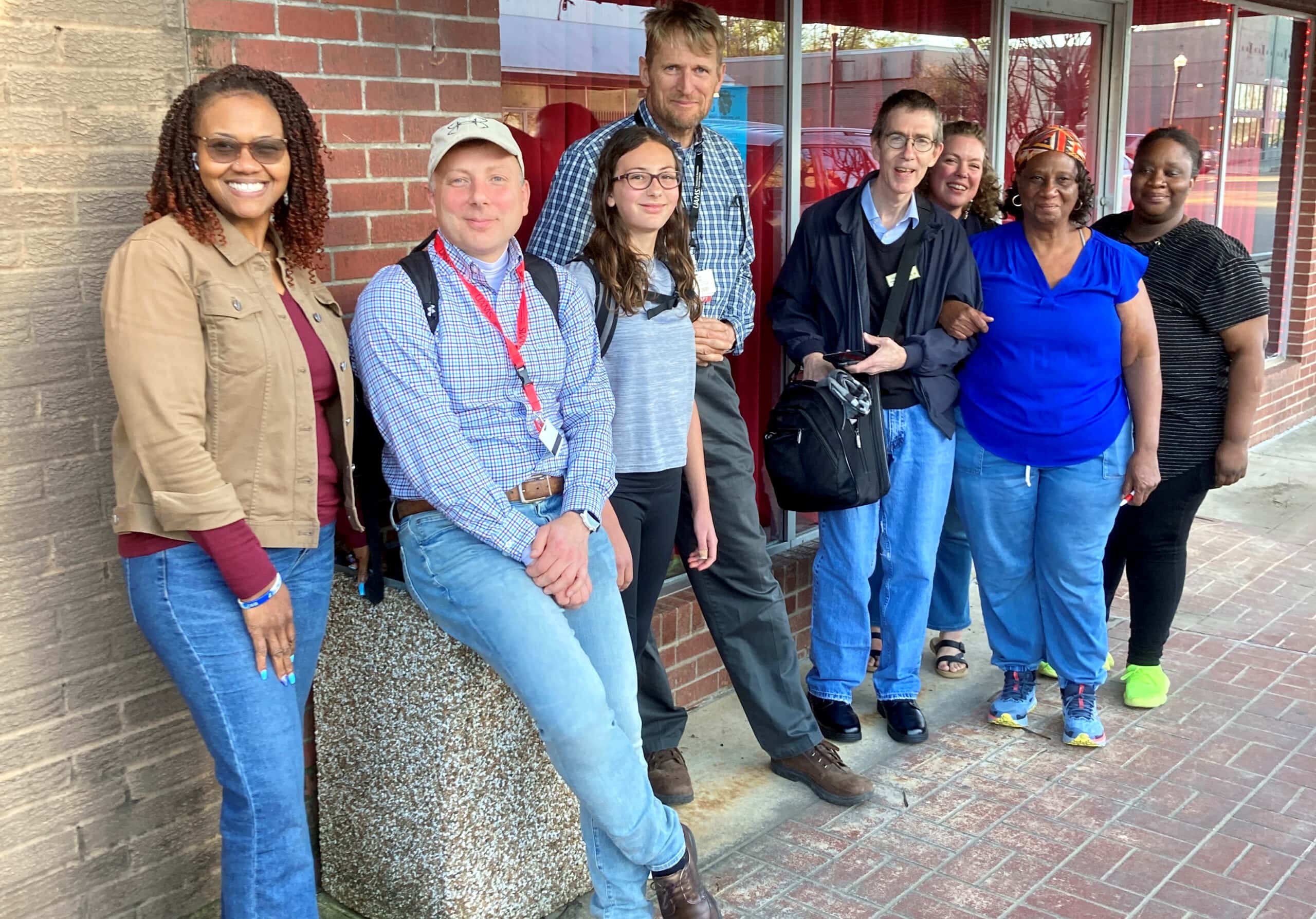UAMS Research Team Works with Chicot County Residents to Find Reasons Behind Respiratory Issues
| Team members from the University of Arkansas for Medical Sciences (UAMS) Department of Environmental Health Sciences are working with residents of Chicot County to find out why there’s a high prevalence of respiratory disease and other health issues in the area.
The department, which is part of the UAMS Fay W. Boozman College of Public Health, is researching possible links between environmental exposures and poor health for people in the county.
“There’s a major demand from the community members of Chicot County to find out what’s causing the widespread respiratory disease, including respiratory allergies, asthma, and even lung cancer in nonsmokers,” said Igor Koturbash, M.D., Ph.D., professor and chair of the department.
Chicot County, which borders rural Mississippi and Louisiana, has just over 14,000 residents. Lake Village is the county seat with a population of just over 2,000 people. Additionally, the county is nowhere near a metropolitan area, which makes the region’s respiratory problems so unusual.
“If there were a big city with lots of traffic, it would make sense,” Koturbash said. “If it were an area with lots of industry or factories, that would make sense. But Chicot County is in very rural southeast Arkansas, far from these environmental factors.”
“We’ve found info from various open sources that the air quality in southeast Arkansas —and specifically Chicot County — is not good,” he said. “But we’re trying to find out why.”
Koturbash noted that southeast Arkansas has high arsenic levels in its soil, especially compared to other places nationally. Also, the region’s climate is getting hotter and drier than it’s been in previous decades, and winds that blow through the area are more frequent and stronger than in the past, he said.
“With climate change, when heavy floods are followed by severe and long droughts, droughts bring more winds that tend to be stronger than before,” he said. “That results in dust from the fields being brought into the towns. The towns in Chicot County are surrounded by fields. Therefore, it doesn’t matter what direction the wind blows, dust is going to go into the towns.”
Thus far, the group has also studied several types of particle dust, including traffic exhaust, pollen, regular dust from parks and agrochemical dusts. Of the various particle dusts studied, among the two most dangerous types to humans are: agrochemical and bio-mass burning — when people intentionally burn organic matter, often wood or crop waste. Burning disused household items is also a normal activity in rural areas such as Chicot County.
“Our findings further emphasized the potential that agrochemicals in Chicot County are one of the major contributors to the poor respiratory health,” Koturbash said. “We want to further research the situation and continue to work with the community members. We also want to work with farmers and explain that we’re not trying to get the use of pesticides banned, instead we want to find ways to make pesticide use safer.”
Collaborating with farmers and the residents of Lake Village, Eudora and Dermott to find the reason behind the respiratory issues aligns with the team’s goal to address the residents’ biggest public health concerns. So far, the collaboration — which began in fall 2022 — has yielded important information beneficial to the residents of Chicot County and the research team.
“They’ve been very receptive to working with us,” Koturbash said. “They know we’re not there to harm them, but to help out. We’ve initiated public health seminars as we go there once every several months to give presentations on public health. We’ve also asked them what they want to learn more about, what they’re concerned with. Topics like air and water quality were expected to be of priority to local communities, but interest in such topics as climate change clearly show that this global problem is a concern for rural communities.”
He noted that the college offers a Master of Public Health track in Climate, Rural, and Global Public Health to teach the state’s future workforce about these issues, as well as to participate in this essential community-based research.
“Building relationships with communities in southeast Arkansas is not just for this project. We want to build trustful, positive relationships that can result in continual citizen science projects for years to come.”
